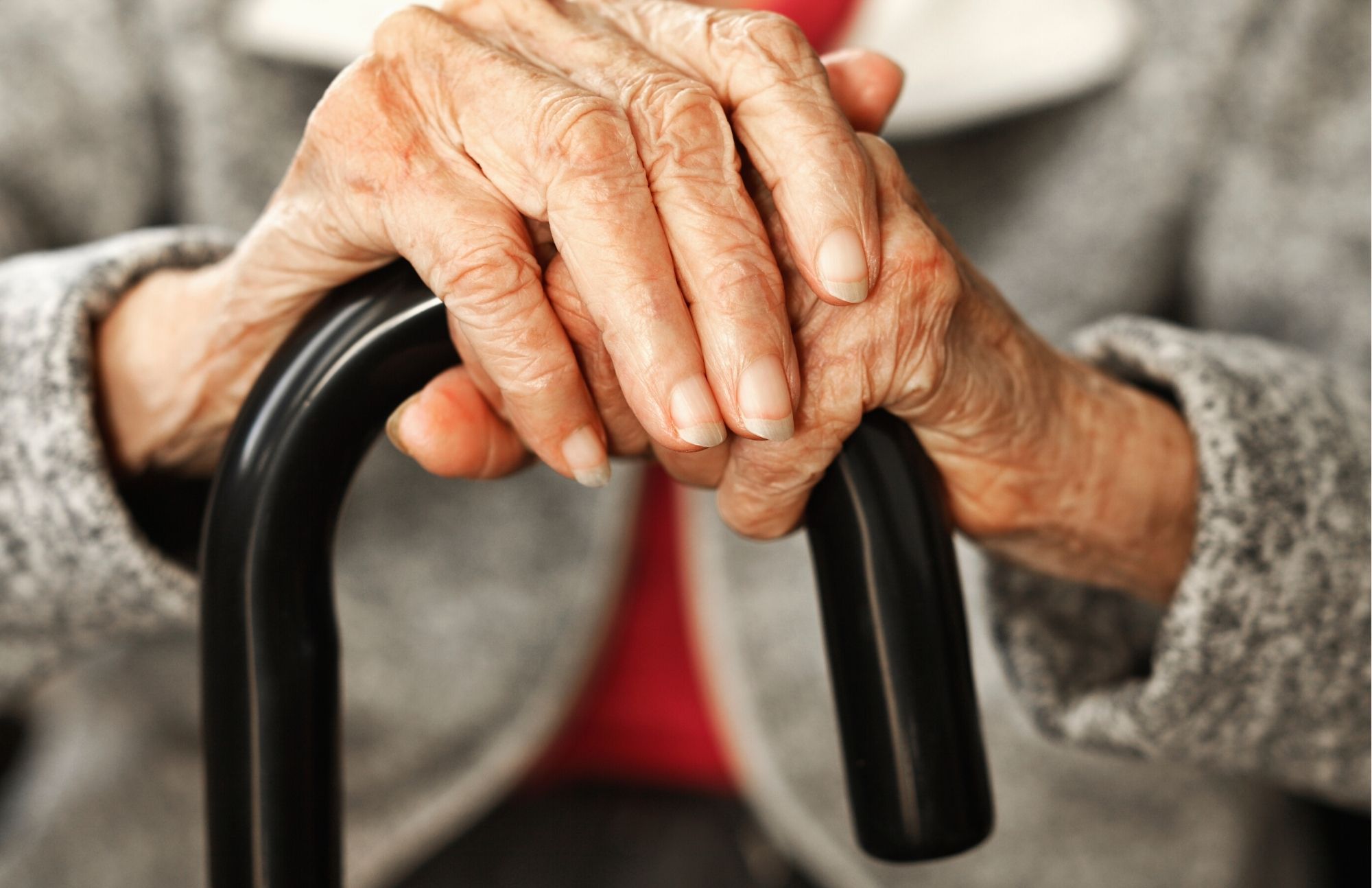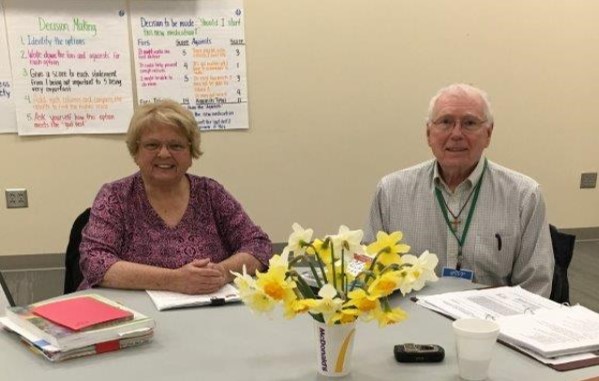
Home delivered meals offer many homebound older adults a sense of connection to the outside world. Meal deliverers check on the welfare of the homebound and often become friends. They are trained to report any health or other problems they may notice during their visits.
The home delivered meal program also works to improve the nutrition of homebound older adults. All meals provide at least one-third of the government's daily-recommended dietary allowances.
Lunch sites are often considered the first defense against hunger in older adults. Consider attending a lunch site if you would like to:
Interested in finding lunch site near you? Give us a call today.

If you are finding that mobility and safety are a concern, you may benefit from minor home modifications.
Types of home modifications could include:
Housing Options
You have a choice, as an older adult, of where and how you want to live. In some measure, your choice may be governed by your health and the type of lifestyle you can afford. Your options are generally defined by the amount of help available with the chosen housing. Because there is sometimes confusion about what the different types of housing are classified as and what each name means, the following general definitions are given along with explanations about the differences.
Congregate Housing
Usually apartments, this is a rental housing arrangement with some common services. These services, most often, include a central dining area providing meals and social activities. The apartments should have safety features such as call buttons and safety rails or grab bars. Services may be included in the rent or there may be an additional cost per service.
Adult Foster Homes
The provider shares their home and family life with one or two residents. In addition to room and board, the services include housekeeping, laundry, some personal care; supervision with finances and medications when deemed necessary. These individuals must NOT need 24 hour supervision. The homes are certified by the Ohio Department of Mental Health.
Adult Care Facilities
These facilities include two types of homes:
Adult Family Homes (3-5 adults) and
Adult Group Homes (6-16 adults)
Both types of homes provide room and board, laundry, housekeeping, and personal care services. The residents must NOT require 24 hour supervision. These homes are licensed by the Ohio Department of Health.
Residential Care Facilities
Homes that provide accommodations, supervision and personal care services for 17 or more adults. These individuals are dependent on the services of others by reason of age or physical or mental impairment; skilled nursing care is permitted only if that care will be provided on a part-time, intermittent basis for no more than 120 days in any 12 month period. The RCFs are licensed by the Ohio Department of Health.
Assisted Living
Like congregate housing, this is usually an apartment situation. The difference is the amount and type of supportive services offered. There is usually a nurse available for monitoring and services may include housekeeping, transportation, laundry, meals and homemaker program. "Service Packages" are usually offered at prices separate from the rent.
Continuing Care Retirement Community
This option provides a type of long-term care insurance. A resident can move in as independent living and progress through various supportive services and on into nursing home care or even hospital care. These are no longer truly lifetime care as they once were. Many are now charging for added services. These are usually situated on acreage with apartments, condominiums, and a skilled nursing home on the site. The distinguishing features about different housing options include:
Level of Care
Amount and types of included services 3. Size of private area
Facility size and type
Age of residents
Lifestyle
No one type of housing is recommended more than another. There are increases in home services as well as new options that allow you to choose. the choice is your to make based upon your lifestyle, financial status and health. Some housing concepts are fairly new and are not available in every community.
Homemaker services are provided for consumers in their homes to help them maintain independence in their residence.
Homemaker activities may include:
Trained aides regularly visit consumers' homes and provide assistance with bathing, grooming and other care that assures the personal hygiene and safety of the individual. Aides may also prepare meals, change linens, help with laundry, clean the home and provide emotional support. Most consumers receive personal care under the Medicaid Waiver Program, PASSPORT, although other limited funding sources are also available.

Emergency response systems that are connected to a phone and respond to a button that the older adult wears. When the button is pushed, the unit activates and calls for help if the older adult cannot get to the phone.
Project Lifesaver
The Project Lifesaver program places personalized radio transmitters (in the form of a wristband) on individuals who may be at risk of wandering away from home. These include older adults with Alzheimer's and dementia and children with Down syndrome, Autism or developmental disorders. These transmitters assist caregivers and County Sheriff’s Offices in locating those who wander.
Transmitters have been placed on those with Alzheimer’s, Dementia and children with Autism, Down syndrome or developmental disorders throughout our service area. Local emergency teams respond to calls when an individual wanders and because of the transmitter technology, on average, individuals have been found in less than 30 minutes.
Interested in registering for Project Lifesaver? Call one of the following:
Ashland County
Contact: Sheriff's Office - (419) 289-3911
Crawford County
Contact: Sheriff's Office - (419) 562-7906 Attn: Major Chad Filliater
Huron County
Contact: Senior Enrichment Services - (419) 668-6245 Attn: Chris, ext. 29
Knox County
Contact: Sheriff's Office - (740) 397-3333
Marion County
Contact: Sheriff's Office - (740) 382-8244, ext. 2
Richland County
Contact: Area Agency on Aging - (419) 524-4144, ext. 1357
Seneca County
Contact: Sheriff's Office - (419) 447-3456
Wyandot County
Contact: Sheriff's Office - (419) 294-2362

The Ohio District 5 Area Agency on Aging, Inc. provides FREE wellness programs to older adults and caregivers across our service area. Programs include Matter of Balance, Active Living Every Day, Diabetes Empowerment Education Program (DEEP, and Tai Chi for Arthritis and Fall Prevention workshops. Click here to learn more.
For more information or to schedule a workshop in your community, contact Karen Hagerman at For more information on this program and upcoming classes, call 567-247-6487 or khagerman@aaa5ohio.org.
Many older adults struggle to pay their Medicare premiums, copayments and prescription drug costs. Still, many aren’t aware that they may qualify for help in covering those expenses. We may be able to help! Do you have Medicare Part D? If yes, you may be able to get help with your Part D premium, deductibles, co-pays and even the doughnut hole.